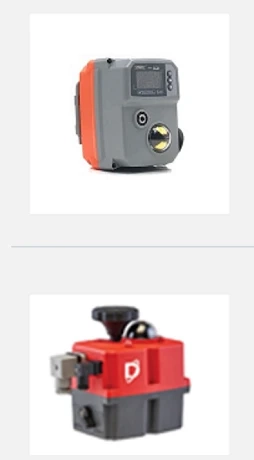Electric actuators have revolutionized various industries, offering unparalleled benefits in terms of efficiency, precision, and versatility. These devices, driven by electricity, are instrumental in converting electrical energy into mechanical motion, providing seamless control over valves, dampers, and other mechanisms. Let's delve into the myriad advantages of employing electric actuators across different applications.
One of the foremost benefits of an electric actuator lies in its efficiency. Unlike pneumatic or hydraulic systems, electric actuators eliminate the need for complex air or fluid supply systems, minimizing energy waste and reducing operational costs. With electric actuators, energy consumption is optimized, ensuring consistent performance while significantly lowering overall power usage.
Precision is another hallmark of electric actuators. By leveraging electrical signals for control, these actuators offer unparalleled accuracy in positioning and movement. Whether it's adjusting valve openings in industrial processes or fine-tuning the orientation of solar panels for maximum sunlight exposure, electric actuators excel in delivering precise motion control, enhancing operational effectiveness and product quality.
Furthermore, the versatility of electric actuators makes them indispensable across a spectrum of applications. From industrial automation to robotics and aerospace, these actuators find widespread use due to their adaptability to diverse environments and requirements. Whether operating in harsh industrial settings or powering intricate robotic manipulators, electric actuators demonstrate remarkable reliability and resilience.
Moreover, the maintenance advantages of electric actuators cannot be overstated. Unlike their pneumatic or hydraulic counterparts, which often require regular servicing and fluid replenishment, electric actuators entail minimal upkeep. With fewer mechanical components and no fluid leaks to contend with, maintenance costs are significantly reduced, ensuring prolonged operational uptime and reliability.
In addition to operational efficiency and reliability, electric actuators also contribute to environmental sustainability. By minimizing energy consumption and eliminating fluid leakage risks, these actuators align with the growing emphasis on eco-friendly technologies. Whether it's reducing carbon emissions in manufacturing processes or enhancing energy efficiency in building automation, electric actuators play a crucial role in promoting environmental stewardship.
In conclusion, the benefits of electric actuators are manifold, ranging from enhanced efficiency and precision to versatility and environmental sustainability. As industries continue to prioritize automation and sustainability, the demand for electric actuator is poised to escalate further. By embracing these advanced electromechanical devices, businesses can unlock new levels of performance, reliability, and sustainability in their operations.



